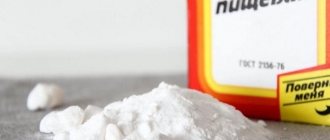Heartburn - every second pregnant woman has to deal with it. Most often it appears after the 20th week of pregnancy and remains until the birth of the child. One of the risk factors is the quantity and quality of food eaten. Therefore, the New Year holidays with parties at work and feasts at home may well provoke heartburn. What can you do to prevent or alleviate these sensations?
What is heartburn? Why does it occur in pregnant women?
Heartburn is a feeling of warmth or burning behind the breastbone that occurs some time after eating. Most often, heartburn appears in the evening. According to popular belief, it bothers the expectant mother when the baby's hair grows. In fact, heartburn occurs due to the reflux of acidic stomach contents into the lower esophagus. This happens because during pregnancy, the muscular sphincter located between the esophagus and the stomach relaxes under the influence of the hormone progesterone. Another cause of heartburn is that the enlarged uterus puts pressure on neighboring organs: the stomach, intestines. As a result, the volume of the stomach decreases, and even the usual amount of food can lead to its overflow and reflux of food back into the esophagus.
Causes of heartburn during pregnancy
Heartburn during pregnancy is common
During pregnancy, a woman’s body begins a global restructuring in the early stages. First, the hormonal background changes, the level of progesterone in the blood increases. This hormone relaxes the muscles, relieves the tone of the uterus and prevents spontaneous miscarriage from occurring.
Despite all the positive aspects of hormone production, there are also some unpleasant consequences, such as constipation and heartburn. It is generally accepted that heartburn appears only in the later stages, when the child puts pressure on all organs, but in the first weeks this phenomenon is also possible.
Food enters the stomach through the esophagus, and under the normal state of the body it does not return. But if the sphincter at the junction of the esophagus and the stomach is weakened, it cannot fully contain food and gastric juice, so some of it enters the esophagus. The mucous membrane of the esophagus is not designed for the aggressive effects of gastric juice; its walls are irritated and a burning sensation and sometimes pain occurs. All these sensations are usually localized in the chest, above the stomach, and sometimes even in the throat.
Over time, the fetus increases in size, the uterus stretches and begins to put pressure on nearby organs. The stomach changes its position slightly and it becomes easier for acid to enter the esophagus. In this case, the burning sensation can be very strong. Your doctor will prescribe a remedy for heartburn during pregnancy that will relieve symptoms and not harm the baby.
However, heartburn is often caused not only by the pregnancy itself, but also by the woman’s lifestyle. While carrying a child, tastes may change; a woman often wants a fried pie or cream cake. This food can provoke heartburn and irritate the mucous membranes.
Those women who are prescribed bed rest especially often suffer from heartburn. After eating, it is generally not recommended to lie down immediately, so as not to facilitate the flow of acid into the esophagus. If a woman has to lie down constantly, heartburn will not be long in coming. The presence of gastritis in a pregnant woman cannot be ruled out. If it was already present before pregnancy, you should inform your doctor about it.
Preventing heartburn during pregnancy
For mild cases of heartburn, doctors usually recommend diet and lifestyle changes. Here are a few rules that will help you avoid or reduce heartburn:
- Eliminate or reduce fatty, fried foods and chocolate in your diet, as these foods provoke additional relaxation of the esophageal sphincter.
- Eat small meals: 5–6 times a day at intervals of 1.5–2 hours and in small portions. Eat slowly, chewing your food thoroughly.
- Heartburn usually occurs in the first two hours after eating, so try not to lie down immediately after eating.
- Try sleeping on a bed with your head elevated (you can add another pillow).
Despite the fact that heartburn is quite unpleasant for the mother, it does not have any negative effect on the baby. Start your fight against heartburn with proper nutrition, and you may not need medications.
Home remedies for heartburn in pregnant women
You can also try using folk remedies for heartburn, the only important thing is that they are safe. For example, milk helps a lot with heartburn ; just a few sips and the unpleasant burning sensation goes away. Grapefruit and carrot juice have the same effect . You can get rid of heartburn with the help of various nuts (walnuts, hazelnuts, almonds), but they are more likely to prevent heartburn than eliminate existing ones. seeds help someone cope with heartburn , but here, as with nuts, one must observe moderation. A few nuts or grains are great, but you shouldn’t eat kilos of them, they contain a lot of fat and are very high in calories.
Nadezhda Desnitskaya, a specialist in natural childbirth and a healthy lifestyle while expecting a child, advises:
Get used to eating fractionally, distributing your entire daily amount of food into 5-6 meals. Give preference to everything fresh and natural to get rid of intoxication.
Bibliography:
- Vyuchnova E.S., Yurenev G.L., Mironova E.M. “The use of proton pump inhibitors in pregnant women: indications and choice” article in the journal “Evidence-Based Gastroenterology” - 2021.
- ZIMMERMAN Y.S., MIKHALEV E.N. “Possibilities of pharmacotherapy in the treatment of gastroenterological diseases during pregnancy” scientific review – 2015
- Kharkevich D. A. “Pharmacology” textbook – 2010.
- Trukhan D.I., Grishechkina I.A. Treatment of heartburn in pregnancy: focus on alginates. Consilium Medicum. 2016;
- Instructions for the drug Omez®10 mg
- Dietary recommendations of the Scientific Society of Gastroenterologists of Russia for patients with GERD
- "Obstetrics. National Leadership" edited by G.M. Savelyeva - 2021.
Use with caution
It is advisable for the expectant mother, if possible, not to take antispasmodics (drugs that relieve spasms of smooth muscles of internal organs) unnecessarily, for example, No-shpu, Papaverine, as they relax the esophageal sphincter and thus contribute to the occurrence of heartburn. Some herbs, such as mint, have the same effect.
Baking soda is often used for heartburn. It really helps to relieve the unpleasant burning sensation very quickly, but at the same time it does not last long. In addition, when soda interacts with gastric juice, carbon dioxide is formed, which has a strong soda effect - as a result, new portions of hydrochloric acid are produced, and heartburn resumes. It should be borne in mind that the sodium contained in baking soda is absorbed in the intestines and can lead to the appearance of edema, and this is completely undesirable for expectant mothers.
Important!
Olesya Molodkina, a gastroenterologist of the 1st category, warns:
You cannot regularly take soda for heartburn, as this disrupts the ratio of salts and water in the body.
What can pregnant women do for heartburn? Safe medications
During pregnancy, you can use so-called antacid medications . These medicines contain magnesium and aluminum salts. They neutralize the acid that is part of the gastric juice, form a protective film on the wall of the stomach, and increase the tone of the lower esophageal sphincter. Nowadays, Maalox, Almagel, Rennie, Gaviscon are most often used. A side effect of some antacids is constipation (due to calcium or aluminum salts), and magnesium, on the contrary, has a laxative effect. Therefore, you should not use these drugs for a long time. When taking antacids, be aware that they may interfere with other medications. Therefore, some time should pass between taking antacids and other drugs.
How to treat GERD?
Reflux should be treated in close cooperation with your doctor.
Self-medication is not acceptable here, because such symptoms can be caused by different pathologies, the treatment of which is different.
Purchasing medications without a doctor’s prescription can temporarily mask unpleasant symptoms, which will only delay complete relief from the pathology.
Treatment for GERD includes:
- taking medications;
- lifestyle changes;
- diet for reflux, esophagitis during exacerbation.
The essence of the diet
Only a doctor can advise which diet for GERD will be effective and which daily menu to prefer.
The essence of the heartburn diet is as follows:
- filling the daily diet with vegetable proteins;
- reduction in the amount of plant proteins;
- reducing the amount of sweets in the diet, you can replace them with juices and fruits;
- refusal of fermented milk products, sour fruits, which provoke an increase in the acidity of gastric juice;
- reducing the consumption of semi-finished products and fast food;
- replacing animal fats with vegetable ones: choose sunflower, corn, olive oils, prefer virgin, unrefined oils;
- refusal of dry food and snacks;
- Between meals, eat sandwiches with dried bread and butter (without smoked or boiled sausage).
List of foods that cause heartburn:
- fatty foods;
- onion;
- caffeine;
- chocolate;
- peppermint;
- alcohol;
- carbonated drinks;
- alcohol;
- citruses;
- tomatoes.
Choosing foods that are suitable for a person with reflux needs to be done individually. The food that is suitable for one person may be useless for another. Just because milk helps someone with heartburn doesn't necessarily mean it will help other people. In some cases, foods may provoke heartburn before bed, but are well tolerated if consumed in the first half of the day.
Organizing proper nutrition for GERD does not always mean giving up your favorite foods. In most cases, some exceptions are enough to alleviate the condition.
Consumption of certain products helps reduce the manifestations of negative symptoms of the disease and make a person’s life easier.
Fruits and vegetables
You should avoid foods that cause heartburn:
- oranges;
- limes;
- lemons;
- grapefruits.
Also read: What are vitamins for? What vitamins and vitamin complexes should you take?
Can be used:
- bananas;
- melons;
- grenades;
- apples;
- pears.
Avoid tomatoes, onions, sauces with irritants in the form of fats, and flavor enhancers.
Lean proteins
Eggs contain a lot of protein. If eating them causes heartburn, you should eat only whites, avoiding high-fat yolks. Otherwise, negative symptoms can increase.
Fried, fatty foods should be avoided
They reduce the pressure of the esophageal sphincter, which delays timely emptying of the stomach, which increases the risk of reflux.
It is better to choose lean cuts of meat, without excess fat content. It can be grilled, boiled, fried in a dry frying pan, or baked in the oven.
Complex carbohydrates
The diet for GERD with esophagitis should include sources of healthy complex carbohydrates:
- couscous;
- oatmeal;
- whole wheat bread;
- brown rice
Potatoes and other root vegetables are a source of carbohydrates and fiber, which are easily digestible. The main thing is not to add garlic or onions to these products. They are the ones who often provoke excess acid synthesis.
Healthy fats
The diet for GERD should include fats. Despite their high calorie content, they are a necessary part of the daily diet.
It is necessary to avoid saturated fats, which a person gets from dairy products and meat. Avoid trans fats found in processed foods, fatty additives, and margarine.
You can replace unhealthy fats with unsaturated fats found in plants and fish:
- monounsaturated fats, found in oils - olive, canola, sesame, sunflower, peanut, found in nuts and seeds;
- polyunsaturated fats are found in soybean, flaxseed, corn, nut oils, soybeans, tofu, salmon, trout, and other types of fatty fish.
13 foods that will relieve heartburn
To relieve reflux, you need to reduce the acidity inside the stomach. There are 13 products that do this job well.
Below is a table containing a list of foods that reduce stomach acidity.
| The product's name | Benefits, features of use |
| Oatmeal | Suitable for breakfast, snack at any time of the day. Nourishing, does not provoke reflux. You can add raisins to porridge; they are known to “quench” the acidity level |
| Ginger | Used since ancient times to treat gastrointestinal diseases. The root must be peeled, chopped, or grated. Ginger is added to prepared dishes, smoothies, and brewed with tea. |
| Aloe vera | Famous natural healing agent. Can be consumed unchanged or purchased ready-made at a pharmacy. Can be used for preparing ready-made dishes as a thickener |
| Salad | The main food for acid reflux, the main thing is not to mix it with onions and tomatoes, cheese, or fatty dressings. The maximum possible addition of sauce to the salad should not exceed one tablespoon |
| Banana | An excellent snack, it has a slightly acidic pH of 5.6%. Some people note worsening heartburn when eating bananas, so the issue of their use should be decided individually |
| Melon | Just like banana, it has an ideal pH of 5.6%. This also includes watermelons, cantaloupes and white melons. |
| Fennel | It has a higher pH of 6.9%, improves the functions of the gastrointestinal tract. Can be combined with arugula, spinach, chicken |
| Turkey, chicken | Poultry meat is the main element of dietary nutrition for heartburn. It can be prepared by boiling, stewing, baking, grilling. You can remove the skin to get less fat. |
| Fish, seafood | You cannot deep-fry, other methods are allowed. You can eat shellfish, lobster, and shrimp. It is important to use seafood that is not farmed, but live |
| Root vegetables, greens | Broccoli, asparagus, cauliflower, green beans are suitable for the diet. |
| Celery | Contains a lot of water, suppresses appetite, contains a lot of healthy fiber |
| Parsley | Improves the functioning of the gastrointestinal tract and is an excellent addition to any dish |
| Couscous, rice, bulgur | They are complex carbohydrates, which means they are very valuable for the health of the body. |
Also read: Benefits of B vitamins for the body. Dietary rules for maintaining normal B vitamins








